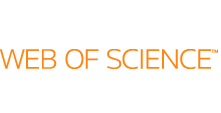Web of Science
Web of Science (previously known as Web of Knowledge) is an online subscription-based scientific citation indexing service originally produced by the Institute for Scientific Information (ISI), now maintained by Clarivate Analytics (previously the Intellectual Property and Science business of Thomson Reuters), that provides a comprehensive citation search. It gives access to multiple databases that reference cross-disciplinary research, which allows for in-depth exploration of specialized sub-fields within an academic or scientific discipline.
A citation index is built on the fact that citations in science serve as linkages between similar research items, and lead to matching or related scientific literature, such as journal articles, conference proceedings, abstracts, etc. In addition, literature which shows the greatest impact in a particular field, or more than one discipline, can be easily located through a citation index. For example, a paper's influence can be determined by linking to all the papers that have cited it. In this way, current trends, patterns, and emerging fields of research can be assessed. Eugene Garfield, the "father of citation indexing of academic literature," who launched the Science Citation Index (SCI), which in turn led to the Web of Science, wrote:
Citations are the formal, explicit linkages between papers that have particular points in common. A citation index is built around these linkages. It lists publications that have been cited and identifies the sources of the citations. Anyone conducting a literature search can find from one to dozens of additional papers on a subject just by knowing one that has been cited. And every paper that is found provides a list of new citations with which to continue the search.
The simplicity of citation indexing is one of its main strengths.
Web of Science is described as a unifying research tool which enables the user to acquire, analyze, and disseminate database information in a timely manner. This is accomplished because of the creation of a common vocabulary, called ontology, for varied search terms and varied data. Moreover, search terms generate related information across categories.
...
Wikipedia

